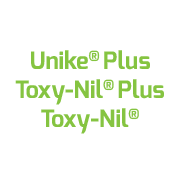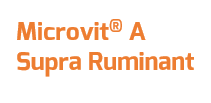



Each video and podcast presents a solution to a potential health concern for transition dairy cows. Through engaging conversations, leading industry and Adisseo experts discuss transition health concerns, the impact on transition cows, and a practical Adisseo solution.

Maximizing the nutrient levels available from feedstuffs advances the cow’s nutritional status. To optimize rumen function, stimulate fiber digestion, and improve production, feed Nutri®-Ferm a unique natural fungal fermentation product.
The resulting higher level of fiber digestibility and higher rates of digestion stimulate a balanced beneficial rumen microflora population for a higher microbial protein yield. Ketosis is minimized, especially during heat stress when dry matter intake is reduced. Acidosis is minimized as lactate is consumed by lactate utilizers which stabilize gut pH. Many consider Nutri-Ferm to be a quintessential prebiotic for improving performance and mitigating the potential surfacing of metabolic diseases.

Even low levels of mycotoxins in rations increase dairy cow problems at transition. Mycotoxin contamination is associated with an increase in the incidences of ketosis, retained placentas, displaced abomasums, mastitis, metritis, lameness, elevated somatic cell counts and decreases in milk production. These invisible, tasteless and odorless toxins accumulate from crop production through feed production. They are often implicated by the poor response of health conditions to veterinary therapy.
Adisseo solutions to the global challenge of mycotoxin contamination include the popular Unike® Plus and Toxy Nil® mycotoxin detoxifiers in conjunction with the MycoMan® [mycotoxin management] range of services. MycoMan enables growers and feed producers to monitor, predict, and test grain quality, so they can react to feed contamination in a timely fashion.

An enhanced immune performance at transition is one of four ways in which vitamin A helps dairy cattle. The other three are enhanced respiratory, digestive, and reproductive performance. Vitamin A, an essential nutrient, is stored in the liver and released according to the needs of target organs.
The world’s most bioavailable vitamin A product Microvit® A Supra Ruminant is stable in premixes and pelleted feeds and becomes 100% available in the small intestine for absorption and use by the dairy cow. Its introduction changed the market standard.

During the transition period, dairy cows experience increased disease risk due to oxidative
stress factors such as environmental stress (e.g., heat stress), nutrition, body condition
score, disease challenge, obesity, and increased plasma NEFA concentrations. Oxidative stress is associated with diseases such as mastitis, acidosis, ketosis, enteritis, pneumonia along with respiratory diseases. It’s also associated with the retention of fetal membranes post-calving and disrupting the activity of the corpus luteum.
To cope with oxidative stress, a ready and constant supply of selenoproteins is required during the stress event. Selenium, a trace element in selenoproteins, provides this antioxidant defense. Selenium is an essential part of 25 selenoproteins more than half of which are directly or indirectly involved in the maintenance of the body’s redox balance and antioxidant defense.
To ensure the animal’s optimal selenium status, supply selenium in the organic form and in
particular in the form of selenomethionine. It is a safe storage form of selenium. When fed the hydroxy-selenomethionine Selisseo®, dairy cows naturally build an endogenous selenium reserve within their body proteins.
Selenomethionine or hydroxy-selenomethionine must be supplied via feedstuffs or supplements. They cannot be synthesized by dairy cows. With feedstuffs, the selenium content varies with the soils where they were grown. To build selenium reserves, supplement with Selisseo, so selenoproteins are readily and constantly available during stress events. Selisseo significantly improves selenium and antioxidant status.

When the cows’ nutritional requirement for methionine, an essential amino acid, goes unanswered, the incidence of metabolic disease increases. A methionine shortage is also associated with low dry matter intake, lower-than-optimal milk and milk component levels, reduced reproductive performance, and an increase in involuntary cullings.
Methionine is heavily involved in the metabolic pathways of dairy cows. It is considered the
enabler of all protein synthesis and, thus, the origin of life. Today’s increasingly precise dairy rations are formulated with a focus on amino acid content that replaces the previous focus on metabolizable protein (MP).
Methionine is a first-limiting amino acid. The cows’ need cannot be fully met by feedstuffs
alone. Dairy nutritionists can best answer the cows’ nutritional requirement by using a rumen-protected methionine in a ration balanced for amino acids.
Product names and availability may vary by region, please contact your local Adisseo representative for more information.